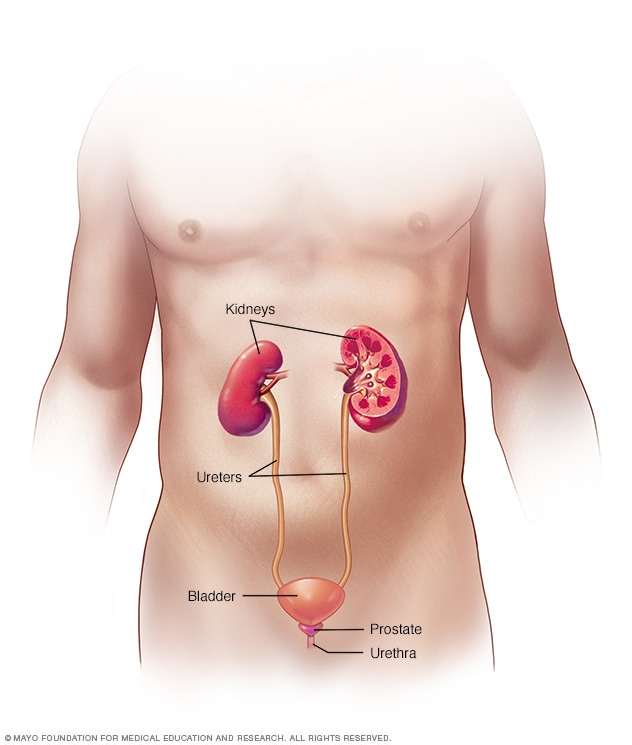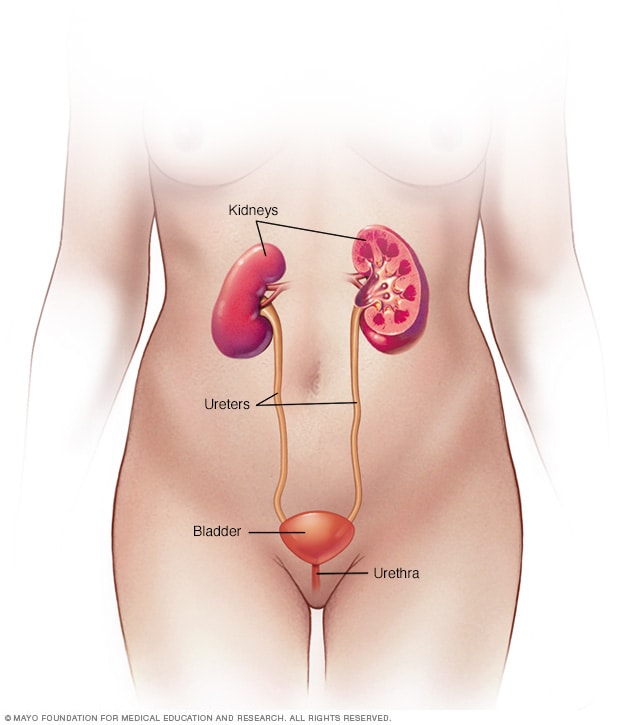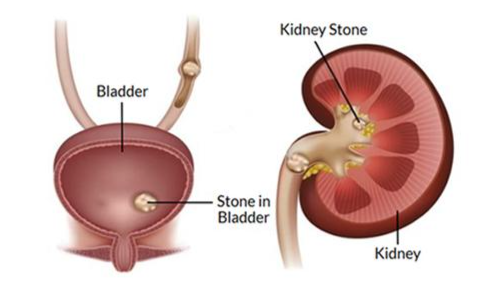Common Symptoms of Bladder stones
- Severe pain in the lower abdomen
- Blood in urine
- Difficulty while urinating
- Hematuria (Red or cocoa color urine)
- Condition with the presence of red blood cells in urine
Causes
- Prostate gland enlargement – This is one of the main causes for developing bladder stone in men. It can obstruct the passing of urine preventing it from emptying the bladder. Thus, results in formation of stones
- Swelling in the bladder
How to Prevent It
- Drink at least 8-10 glasses of fluids in a day
- Avoid high consumption of meat, eggs, animal fat diet
Consult the best nephrologist immediately if you face any inconvenience to avoid aggravating the problem
Common Symptoms
- Severe pain in lower abdomen
- Blood in urine
- Difficulty while urinating
- Hematuria (Red or cocoa color urine)
- Condition with the presence of red blood cells in urine
Causes
- Prostate gland enlargement – This is one of the main causes for developing bladder stone in men. It can obstruct the passing of urine preventing it from emptying the bladder. Thus, results in formation of stones
- Swelling in the bladder
How to Prevent It
- Drink at least 8-10 glasses of fluids in a day
- Avoid high consumption of meat, eggs, animal fat diet
Consult the best nephrologist immediately if you face any inconvenience to avoid aggravating the problem

Male urinary system open pop-up dialog box
Female urinary system open pop-up dialog box
Bladder stones can develop when your bladder doesn’t empty completely. This causes urine to become concentrated urine. Concentrated urine can crystallize and form stones.
Some infections can lead to bladder stones. Sometimes an underlying condition that affects the bladder’s ability to hold, store or eliminate urine can result in bladder stone formation. Any foreign materials present in the bladder tend to cause bladder stones.
The most common conditions that cause bladder stones include:
- Prostate gland enlargement. An enlarged prostate (benign prostatic hyperplasia, or BPH) can cause bladder stones in men. An enlarged prostate can obstruct the flow of urine, preventing the bladder from emptying completely.
- Damaged nerves. Normally, nerves carry messages from your brain to your bladder muscles, directing your bladder muscles to tighten or release. If these nerves are damaged — from a stroke, spinal cord injury or other health problem — your bladder may not empty completely. This is known as neurogenic bladder.
Other possible causes of bladder stones include:
- Inflammation. Bladder inflammation, sometimes caused by urinary tract infections or radiation therapy to the pelvis, can lead to bladder stones.
- Medical devices. Bladder catheters — slender tubes inserted through the urethra to help urine drain from your bladder — may cause bladder stones. So can objects that accidentally migrate to your bladder, such as a contraceptive device or urinary stent. Mineral crystals, which later become stones, tend to form on the surfaces of these devices.
- Kidney stones. Stones that form in your kidneys are not the same as bladder stones. They develop in different ways. But small kidney stones may travel down the ureters into your bladder and, if not expelled, can grow into bladder stones.
Risk factors
Men, especially those over 50, are more likely to have bladder stones.
Conditions that can raise the risk of bladder stones include:
- An obstruction. Any condition that blocks the flow of urine from your bladder to the urethra — the tube that carries urine out of your body — can lead to bladder stone formation. There are a number of causes, but the most common is an enlarged prostate.
- Nerve damage. Stroke, spinal cord injuries, Parkinson’s disease, diabetes, a herniated disk and a number of other problems can damage nerves that control bladder function.
It’s possible to have nerve damage and a condition that causes bladder outlet obstruction. Having these together further increases the risk of stones.
Prevention
Bladder stones are usually caused by an underlying condition that’s hard to prevent, but you can decrease your chances of bladder stones by following these tips:
- Tell your doctor about unusual urinary symptoms. Early diagnosis and treatment of an enlarged prostate or another urologic condition may reduce your risk of developing bladder stones.
Lithopaxy (removal of bladder stones) - Drink plenty of fluids. Drinking more fluids, especially water, may help prevent bladder stones because fluids dilute the concentration of minerals in your bladder. How much water you should drink depends on your age, size, health, and level of activity. Ask your doctor what’s an appropriate amount of fluid for you.

